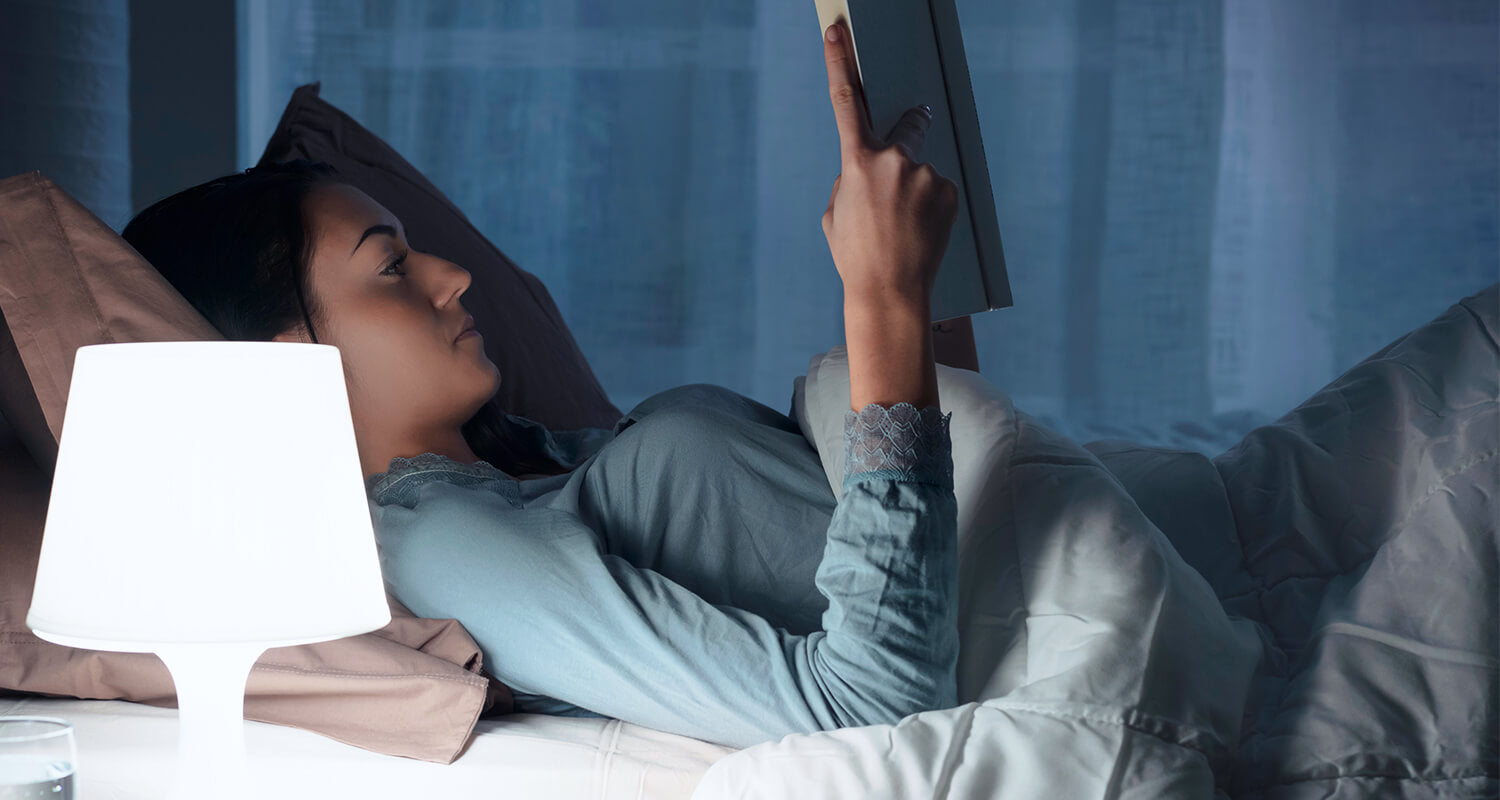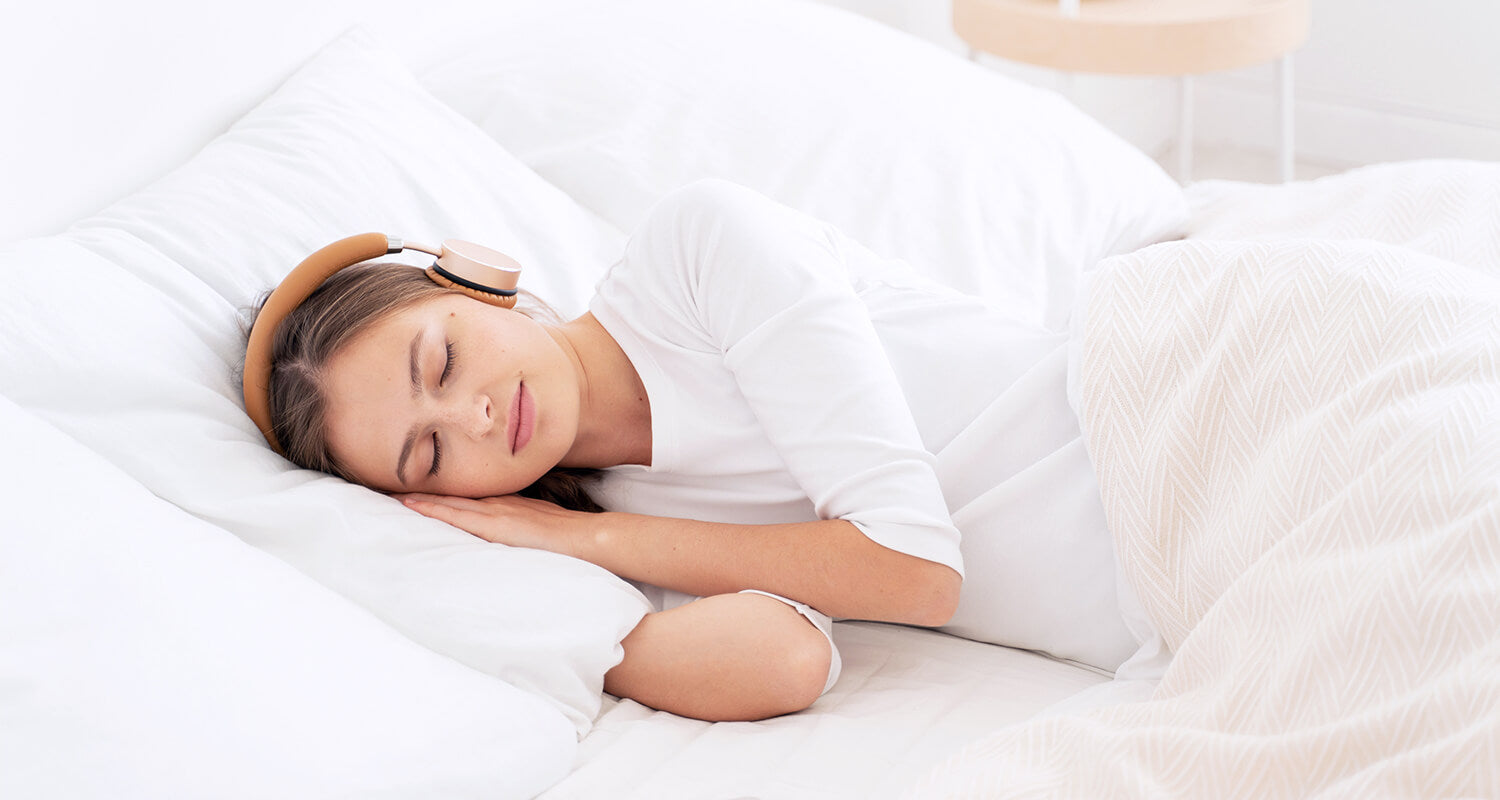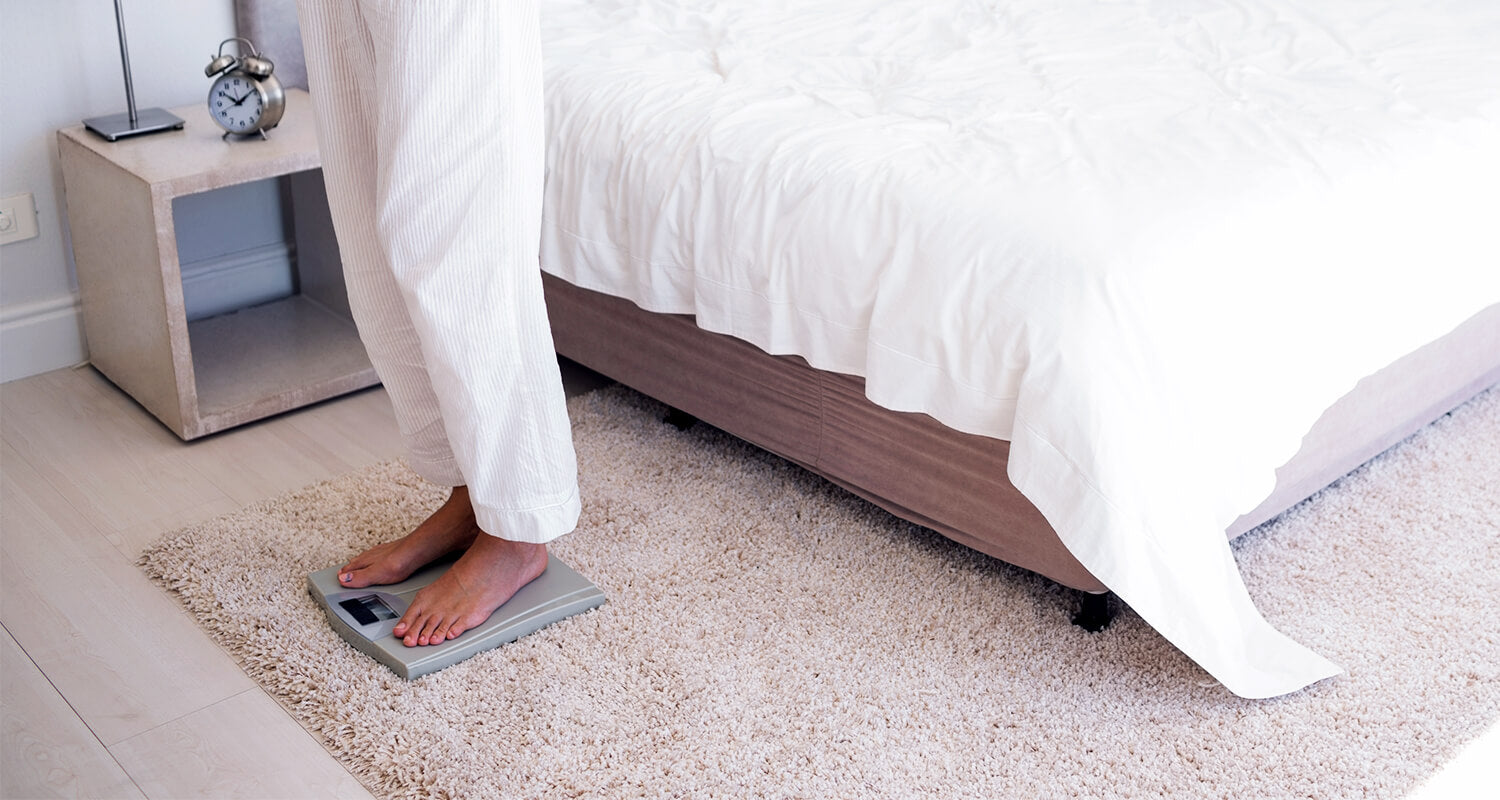
The best sleep tips
Difficulty falling asleep is one of the most common sleep disorders and impairs the duration and quality of our sleep. But what can we do if we can't fall asleep despite being tired and regularly lie awake for hours? We've compiled the most important sleep tips at a glance and show you simple methods you can use to help you fall asleep and quickly achieve restful sleep.
Table of contents
- Difficulty falling asleep
- The most important tips for falling asleep
- Optional sleep aids
- The Sleep Guide
- Conclusion
1. Difficulty falling asleep
Lie down, close your eyes, and fall asleep – sometimes that sounds easier than it is! Falling asleep quickly and easily is becoming increasingly difficult these days, and as a result, one in two Germans suffers from persistent sleep problems. According to experts, those who regularly have trouble settling down and need more than 30 minutes to fall asleep despite being tired are suffering from serious sleep problems. The average time it takes adults to fall asleep is between 5 and 20 minutes. There are many different reasons why we can't sleep. The most common causes include stress, poor sleeping habits, or a lack of relaxation. These factors make it difficult or even impossible to fall asleep in the evening, thus not only robbing us of valuable hours of sleep, but also hindering our recovery during the night and a healthy start to the day.
So what can we do to facilitate the natural process of falling asleep in the evening and support our body in falling asleep gently and quickly?
2. The most important tips for falling asleep
A restful night begins with a good start to sleep. We've compiled the most important sleep tips at a glance to help you relax more easily in the evening and quickly drift off to a restful sleep.
#1 Get as much daylight as possible

The happiness hormone serotonin is released in the dark Melatonin For this reason, a healthy serotonin level is not only beneficial for our mood and well-being, but also an important prerequisite for good sleep. Getting enough daylight supports the hormone production crucial for sleep and promotes natural tiredness and the process of falling asleep in the evening.
#2 Exercise or do sports regularly
Regular exercise boosts the cardiovascular system and metabolism in the brain, body, and muscles, activates the nervous system, and has a positive effect on hormone balance. An active daily routine thus promotes fatigue and the need for regeneration in the evening, has a positive effect on falling asleep, and can demonstrably improve sleep quality by up to 65%!
#3 Maintain a healthy and balanced diet
A healthy diet and balanced nutrient supply have a decisive influence on our sleep and falling asleep behavior.
➥ Heavy meals They make you sluggish, disrupt sleep, and easily distract your body while you're trying to fall asleep. Avoid foods that are high in fat or sugar in the evening and eat a last, preferably light meal up to three hours before bedtime to complete the digestive process and avoid disrupting your sleep.
➥ Also, avoid nerve stimulants containing caffeine, alcohol or nicotine in the last 4 hours before going to bed.
➥Pay attention to your fluid intake and drink plenty of fluids throughout the day. Water, light fruit juice, or unsweetened tea are best.
➥Some Groceries provide valuable nutrients that can positively influence sleep. These include grapes (melatonin), bananas and almonds (L-tryptophan), and pumpkin seeds and whole grain products (magnesium).
#4 Relax & wind down before going to bed

Switch off, wind down, and relax! Whether physical or mental, stress leads to an increased release of the stress hormone cortisol, which acts as an antagonist to the sleep hormone melatonin in the sleep-wake cycle. Stress thus counteracts restful sleep and disrupts the natural process of falling asleep. Try to calm down both physically and mentally and let go of stress, worries, or everyday problems.
Here you will find detailed tips for the Relaxation before sleep!
#5 Establish a fixed sleep routine
Get used to a regular sleep rhythm And try to go to bed and wake up at the same time every day. This helps your body naturally prepare for sleep in the evening and supports a quicker fall asleep process.
#6 Create a quiet, dark and comfortable sleeping environment
Light inhibits the urgently needed melatonin production and therefore counteracts natural tiredness and the sleep process. So dim the lights a few hours before bedtime and try to avoid bright screens and other light sources in the evening, especially at night. You should also choose a cool and quiet environment. Sleeping environment so that you are not distracted and woken up again, especially while falling asleep, for example by noise or other disturbing stimuli.
3. Optional help for relaxation & falling asleep

Everyone reacts differently, and how effective one or another sleep tip actually is depends, of course, on the underlying cause of our sleep problems and our personal circumstances. In everyday life, it's not always easy to follow all the rules and tips every day.
#7 Dietary supplements to naturally support relaxation and sleep
Nowadays, there are already numerous safe and scientifically proven supplements that can support your body and mind in the relaxation and sleep process. Many herbal extracts and natural nutrients, such as vitamins or minerals, can have a calming and relaxing effect on us, helping us to unwind and prepare for sleep in the evening. Falling asleep can also be naturally promoted with the help of a safe dietary supplement, for example, with preparations containing the sleep hormone melatonin. additional intake of melatonin is generally harmless and has been proven to promote the natural sleep process. When choosing a dietary supplement, pay particular attention to the high quality of the nutrients used.
Watch out! We recommend that you use only natural relaxation or sleep aids when needed. Chemical sleep aids affect sleep in an unnatural way, can have numerous side effects, and can also quickly lead to addiction.
#8 Sleep techniques: Auditory sleep accompaniment & breathing exercises
Are you already in bed and just can't fall asleep? Certain breathing techniques, meditative relaxation exercises, or the increasingly popular auditory sleep aids can be used directly to help you fall asleep faster. Especially when stress, thoughts, and worries are keeping you awake, these techniques can help release emotional and physical tension and focus on the upcoming rest period. You can find useful breathing exercises in this article. We've explored how music can also contribute to a restful sleep process here.
4. Your sleep guide

5. Conclusion
The conditions under which we fall asleep best and fastest vary from person to person and depend on many different factors. Therefore, it's important to listen to your sleep needs and your personal perception in order to find the optimal conditions for you to relax before bed, fall asleep, and enjoy a restful night's sleep. Because good sleep is and remains one of the most important foundations for a healthy start to your daily life!
Best wishes and sleep well!



Leave a comment
This site is protected by hCaptcha and the hCaptcha Privacy Policy and Terms of Service apply.